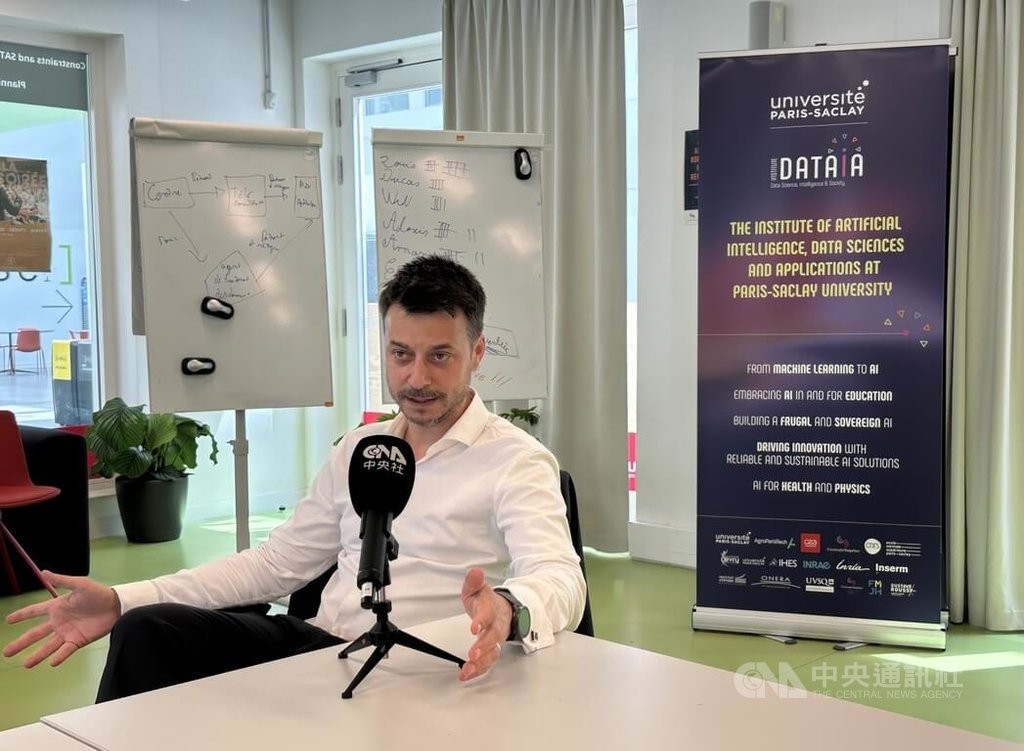"France trains talents to become an AI powerhouse, and co-educates future technology leaders with Taiwan," published by Central News Agency (CNA Taiwan), September 10, 2025.
France not only cultivates refinement, but also strives for supremacy in AI
When we think of France, we instantly think of culture, cuisine, and great designers. Yet, behind this image lies a major technological power. In 2024, France ranked 11th in the Global Innovation Index. It ranks second in Europe for the number of patents filed.
In fields as diverse as aerospace, chemistry, AI, and the energy transition, France plays a central role globally and acts as a driving force for European R&D. In recent years, the French AI ecosystem has exploded. In 2024, France entered the top 5 of the Global AI Index for the first time, thanks to its particularly strong research and development results. Taiwan ranks 21st.
Since 2018, France has been implementing a national plan to become an AI superpower. In 2025, it entered the third phase of this plan, focused on four main areas: strengthening AI infrastructure, training and attracting talent, accelerating the societal uses of AI, and ensuring trustworthy AI development.
Infrastructure and Training: The Foundations of This Transformation
One of the keys to the profound change in the French ecosystem: massive investment in higher education and infrastructure. Paris-Saclay University, renowned among the world's best mathematics universities, plays a major role.
In 2017, DataIA was created, an artificial intelligence center affiliated with several academic and research institutions, bringing together approximately 800 researchers and engineers. This center is funded as part of the "France 2030" plan and is one of France's nine major AI hubs.
The ecosystem doesn't just exist in lecture halls: it's very close to industrial companies. At Paris-Saclay, giants like IBM and Sanofi collaborate on R&D projects. At the same time, France is developing its basic infrastructure: computer servers, data centers, and national super-computing centers. It is also receiving European funding to build computing clusters across Europe.
Another major challenge: the energy impact of AI. France is directing some research toward more energy-efficient AI, while maintaining performance and quality.
Taiwan, a Natural Partner for Co-Training Technology Leaders
Taiwan appears to be a valuable ally for France in this field. Frédéric Pascal, Vice President and Director of the DataIA Center, places great emphasis on current and future collaborations, particularly in AI and quantum computing.
Concrete projects include academic exchange programs between France (via Paris-Saclay) and Taiwan (via the National Taiwan University, etc.), joint research, and high-level cooperation involving the French CEA and other Taiwanese entities such as the Taiwanese Industrial Research Institute (ITRI). These collaborations aim to enable small startups to better integrate into industrial chains or to industrialize the AI solutions developed more efficiently.
Frédéric Pascal also mentions that he has already visited Taiwan three times in the first half of the year and admires the richness of its ecosystem: incubators, accelerators, startups, large companies, universities—all connected.
Taiwan excels in particular in the rapid integration of new technologies into major industrial sectors, including semiconductors. This "connection" between innovation and industry is seen as a major asset by the French.
In conclusion: a shared, promising future
The French AI strategy is based on three pillars: talent training, solid infrastructure, and trust in its uses. With Taiwan, France has found a partner whose innovative ecosystem complements its own—to co-educate the leaders who will shape the future of AI in the Asia-Pacific region, but also globally.






